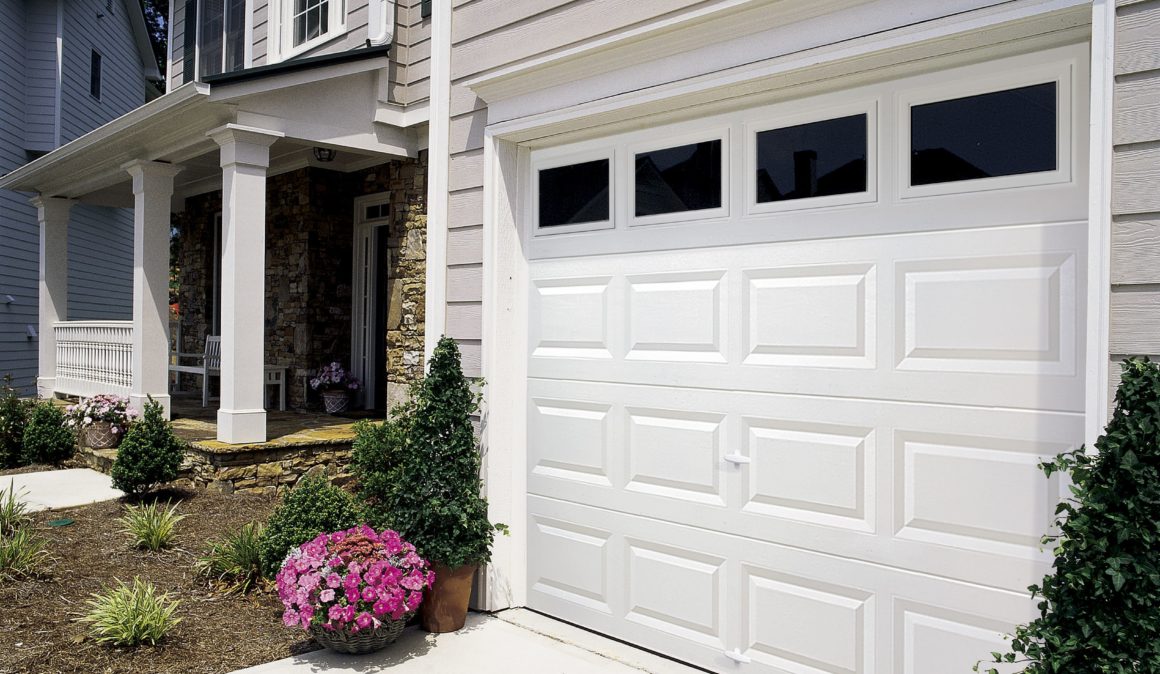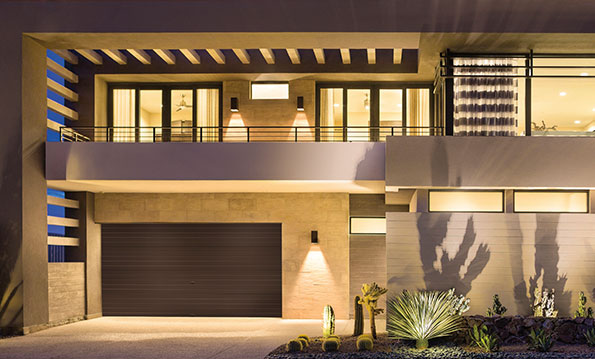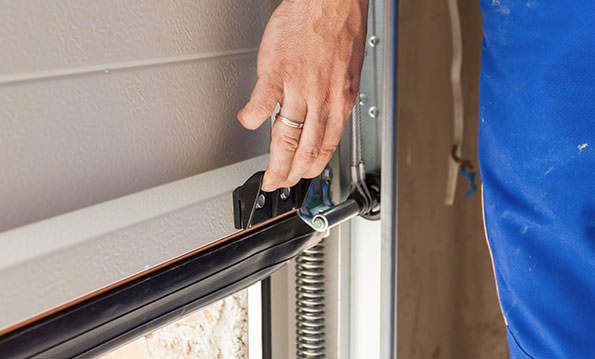Why Your Garage Door Is So Loud When Opening Or Closing
If your garage door makes a loud noise when opening or closing, it’s a sign that something is not right with your garage door mechanism. You may be wondering what causes a noisy garage door. Depending on the kind of sound you are experiencing, the problem may have a very different origin. Grinding is not the same as squeaking or banging. If it is something small, such as hinges in need of lubricant, you may be able to fix it yourself.
But, if it is something more dangerous, such as a broken torsion spring, it may be time to call a professional. This article can help you diagnose the problem and know when you need an expert’s help.

Common Garage Door Noises and What They Mean
While some noise is normal, if you are experiencing an unusual sound, you can typically figure out what’s wrong by listening. Is it rattling, creaking or scraping? The specific noise can tell you a lot about the cause of the issue.
Rattling
A rattle or vibration upon opening your garage door is usually a sign of loose nuts or bolts along the track. You can typically fix this with a wrench and socket. However, over-tightening can damage your garage door as well, so consider calling a professional.
Another explanation for your garage door rattling when opening or closing is poor lubrication. Clopay® recommends lubricating the rollers, hinges and springs in your garage door mechanism once every two months, whether or not you experience an unpleasant sound. This can prevent a sound from recurring and protect against wear.
A rattle can also be a sign of unbalanced doors. If you have just installed a new garage door and are experiencing rattling, it may not have been installed properly.
Grinding
If your garage door is making a grinding noise when opening or closing, the first place to look is your rollers. Worn rollers, especially metal ones, can cause a grinding sound. They may need lubricant, but if you see signs of wear or damage, it is best to have them replaced. Nylon rollers are an excellent option for noise reduction. They are quieter, need no lubrication, and last just as long as metal rollers.
A misaligned shaft system, problems with the hinges or a bent track can also cause grinding noises. Look for metal filings in these areas to find where metal is scraping against metal.
Squeaking
If your garage door squeaks loudly, you may need to lubricate. The hinges, rollers, pulleys, bearings and springs can all cause squeaking sounds without proper lubrication. By listening closely, you can determine where the sound comes from and apply some lubricant to the offending area.
If this does not resolve the squeaking problem, check your rollers and ball bearings for loose parts. If there is anything loose, you will also see your doors wobble along the track.
Banging
If your garage door makes a loud banging noise when closing or opening, the door may be unbalanced or have a broken torsion spring. The spring may be causing a banging or crashing sound, particularly when the door hits the floor. Check the springs and lubricate them if necessary. If you see any loose or broken springs, call a repair technician as soon as possible. Do not attempt to fix an issue with the springs by yourself, as the high tension makes them very dangerous.
Common Garage Door Opener Sounds and What They Mean
If you find nothing wrong with the garage door, take a look at the opener. A garage door opener older than seven years or operated by a chain is prone to some extra noise. Several things could be the cause of a noisy garage door opener.
If you find that nothing is wrong with the opener itself, consider replacing a chain-operated opener with a belt-operated one. You will need the help of an expert to install one, but belt-driven openers are much quieter and can give you some relief.
Rattling
If you hear rattling from the garage door opener, there might be an issue with the support rails or a loose chain.
A loose chain might also cause a snapping or slapping sound. If jerky movements accompany the sound, the chain is the likely culprit.
Grinding
If the sound from your garage door opener is more of a grinding noise, the chain and other moving parts need lubrication. Spray a liberal amount of lubricant and try opening and closing the garage door several times to spread the liquid to all parts of the opener. If you are experiencing a grinding sound as well as trouble opening and closing the door, the opener is likely at fault.
A stripped opener gear can also cause a grinding sound. If this is the case, call a professional to replace the equipment.
Straining
When your garage door opener is straining, the motor could be defective or have low horsepower. In either case, speak with a professional about retrofitting a new one.
How to Tell When Your Garage Door Needs Repair, Service, or Maintenance
Generally speaking, we recommend getting professional maintenance on your garage door and opener once a year. So, if you are experiencing loud and irregular noises, it is a good idea to have an expert look at your garage.
If you have inadequate lubrication, you can purchase a silicone-based garage door lubricant and resolve the problem on your own. However, a professional garage door tune-up is inexpensive, and your repair person will lubricate all moving parts and catch other issues before they become dangerous.
If you choose to work on your own garage door, disconnect the opener and work with a partner to prevent injury. Do not attempt to replace rollers, hinges or springs on your own. A mistake could cause your garage door to fall off the tracks and lead to severe injury or death.
Schedule a Tune-Up or Get a Free Estimate Today
Garage door noises can be very frustrating, especially if you can’t identify the cause on your own. The Doorman of Southeast Florida will provide you with honest door repair, service and maintenance, and our friendly staff will help keep your garage door system in good condition. We offer an annual tune-up for only $39.95 and can give you a free estimate if you are experiencing any issues. To schedule service, call 561.600.9606 or contact us online
Residential Garage Door Options
Impact Rated Garage Doors
Impact Rated Entry + Patio Doors










